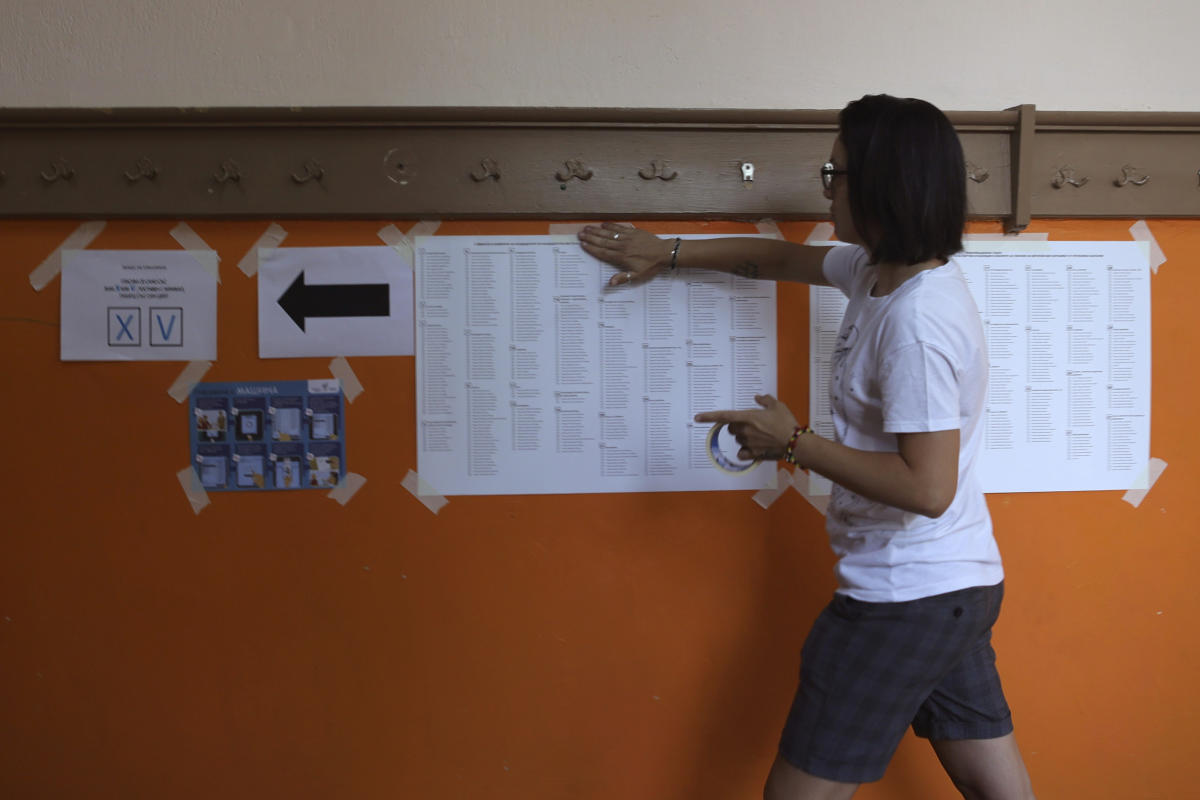Voters across the European Union are going to the polls on the final day of voting for the European parliamentary elections to choose their representatives for the next five-year term.
Polls opened in 20 EU countries early Sunday for the June 6-9 elections for a new European Parliament, the legislative branch of the 27-member bloc.
Millions of Europeans have been casting their ballots this week in one of the world’s biggest democratic elections. Far-right parties are looking to gain more power amid a rise in the cost of living and farmers’ discontent, while the wars in Gaza and Ukraine are also key topics weighing on the minds of voters.
The economy, jobs, poverty and social exclusion, public health, climate change and the future of Europe are also prominent issues.
Official results are not expected before the last polling stations in all 27 EU nations close late Sunday.
Currently:
— An assault on the Danish prime minister is the latest in a recent surge in political violence in Europe
— Italy’s far-right Prime Minister Giorgia Meloni tells the EU’s traditional center parties their time is up
— What’s at stake: AP’s explainer on how it works and the main issues
— Overwhelmed by the elections? A guide to the key races to watch
Here’s the latest:
HUNGARY’S PRIME MINISTER FACES FIRST ELECTORAL TEST SINCE NEW RIVAL APPEARS
BUDAPEST, Hungary — Many Hungarian view the election as a referendum on the popularity of Prime Minister Viktor Orbán, whose illiberal policies and his support for Russia have pushed him to the margins of the European Union.
While Fidesz has dominated Hungarian politics since 2010, many Hungarians are deeply dissatisfied with the direction the country is going, and hope to deal a blow to Orbán by supporting one of the most formidable challengers he’s ever faced.
Péter Magyar, a 43-year-old lawyer and former insider within Orbán’s party, has built up Hungary’s strongest opposition party in a matter of months and hopes to use a good showing in Sunday’s elections to propel himself and his movement toward defeating the prime minister in the next national ballot scheduled for 2026.
Orbán’s governing Fidesz party is expected to win the largest share of the vote after campaigning heavily on fears that the war in neighboring Ukraine could escalate to involve Hungary directly.
Hungary is set to take over the EU’s rotating six-month presidency next month.
POLAND VOTES WITH WAR IN UKRAINE AND MIGRATION ISSUES IN FOCUS
WARSAW, Poland — Poles are voting at a time of great insecurity for the nation, which is located along the eastern flank of both the European Union and NATO.
The war just across the border in Ukraine has created fears that if Russia were to prevail, Poland and neighboring nations that were once under Moscow’s control could be targeted next.
A migration crisis is also playing out along another stretch of the eastern border with Belarus. Poland accuses Belarus and Russia of luring large numbers of migrants to the border to create instability. The crisis has been deadly, with a migrant recently stabbing to death a Polish soldier. Dozens of migrants, if not more, have also died in the swampy forest area since 2021.
Prime Minister Donald Tusk has stressed national security, promising to strengthen border controls as he seeks a good showing for his centrist, pro-EU party.
On the minds of some Poles is the nature of the EU itself. In a nation under foreign rule for long spans in the past, some Poles fear that the 27-member bloc is taking away too much power from individual nations.
“We know that the European Union is in crisis, so maybe our elections will change something in the decision-making and efficiency of this body,” said Anna Grzegorczyk-Łuczak, a 60-year-old architect who voted early in Warsaw. She would not say which party she voted for.
BULGARIANS CAST BALLOTS FOR NEW PARLIAMENT AND IN EU ELECTIONS
SOFIA, Bulgaria — Bulgarians are choosing a new parliament Sunday while also participating in European Union elections that have been overshadowed by domestic political instability and economic inequality as well as growing concern over the war in nearby Ukraine.
It was Bulgaria’s sixth parliamentary election in three years. There were worries that voter fatigue and wide disillusionment with politicians who do not fulfill promises to fight corruption and introduce reforms could result in a low turnout and another fragmented parliament.
Preliminary results are expected Monday in the voting for the 240 seats in the National Assembly and for 17 members in the European Parliament.
The front-runners in the National Assembly elections were seen as the GERB center-right party led by three-time Prime Minister Boyko Borissov and the reformist coalition We Continue the Change–Democratic Bulgaria.
After running neck and neck in last July’s election, the two rival groups sought to break the political stalemate by forming an uneasy governing coalition, but it survived only nine months.

